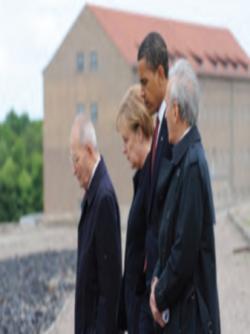Fragile As a Rock?
What will come of Gibraltar as British naval power wanes?
Is Gibraltar an 18th century anachronism? Should the British simply hand over its six square kilometres of territory, which the Spanish claim is rightfully theirs?
Spain is once again challenging Great Britain's tenuous hold on the strategic Rock of Gibraltar—that tiny outcrop of limestone at the southern tip of the Iberian Peninsula. It has been a constant source of irritation to the Spanish ever since the Treaty of Utrecht ceded it to the British in 1713 with the stipulation that the fortress and its town "were to be held and enjoyed forever without exception or impediment whatsoever."
Relations between Gibraltar and Spain have long been difficult. In 1969, Generalissimo Francisco Franco, ruler of Spain from 1936 to 1975, had closed his nation's border to Gibraltarians. The socialist government that followed after Franco's death brought Spain into the North Atlantic Treaty Organization, and when in 1986 Spain joined the European Union, hopes again flared in Spain that a supranational authority might persuade Britain to hand back "the Rock."
In June 2009, the EU gave Spain additional rights to the waters around Gibraltar by declaring a new "environmental zone" to be maintained by Spain. But there is more. "Under EU law, a conservation site can only be declared by the sovereign state which owns the piece of land or sea in question. So by allowing Spain's request to include waters around Gibraltar, European bureaucrats have tacitly recognised its possession of British territory" ("Gibraltar Con Trick," The Daily Mail, June 1, 2009).
What few understand is that this squabble is not just a contest between Spanish covetousness and British intransigence. It is about a promise God made to Abraham and his descendants nearly 4,000 years ago.
Long-time Tomorrow's World readers know that Scripture reveals the people of the United States, along with the British-descended peoples, are modern-day descendants of of ancient Israel. The Bible shows that when Jacob (Israel) died, he passed on to Joseph—and Joseph's two sons Ephraim and Manasseh (Genesis 48:16, 20)—all the blessings God had given him. These blessings were in addition to the blessings God had previously promised to Abraham and Isaac.
Scripture recounts a blessing God promised to these descendants, that "blessing I will bless you, and multiplying I will multiply your descendants as the stars of the heaven and as the sand which is on the seashore; and your descendants shall possess the gates of their enemies" (Genesis 22:17).
This promise was to be fulfilled in the "latter days"—near the end of the age just before Jesus Christ's return to earth. Though the promise was unconditional in its fulfilment, God placed conditions on Abraham's progeny if they were to retain the blessings. He warned that if they despised His statutes and abhorred His judgments, He would remove His benefits from them (Leviticus 26:14–17).
This is what we are now seeing, as Britain's global reach diminishes.
Sea Gates
At the height of its empire, Britain held the majority of the world's sea gates. Some historians have called these "choke points" where natural topographical and geological factors combine to create waterways, giving those who control them a strategic naval advantage.
Consider the Straits of Malacca, through which pass 80 percent of Japan's oil imports and 50,000 ships each year. Great Britain controlled that waterway until it gave Singapore independence in 1965. Throughout the 1950s and 1960s, decolonisation of its Empire meant that the once-powerful British nation divested most of its sea gates. Here is a list of strategic territories that Britain gained, then lost.
| 1815–1948 | Sri Lanka |
| 1882–1956 | Suez Canal (in Egypt) |
| 1819–1965 | Singapore |
| 1839–1967 | Aden |
| 1795–1975 | Simon's Town Naval Base (in South Africa) |
| 1841–1997 | Hong Kong |
Great Britain still holds several sea gates. Along with Gibraltar, it controls the Falkland Islands (called the Malvinas by Argentina, which also claims them), and at a great cost in British lives and wealth defended that control in a 1982 war. Another less strategic possession is the island of Diego Garcia, in the Indian Ocean, which Britain leases to the U.S. and which played a role during the two Gulf Wars.
The United States has also controlled several sea gates, including the Philippine naval base at Subic Bay (1899–1992) and the Panama Canal (1914–1999). With the loss of those gates comes a loss of international influence; not only has the Panama Canal been ceded to Panama, but this vital strategic resource is now being managed by a company from the People's Republic of China! What will this portend in the event of a military conflict?
What do world trends portend for the future British control of Gibraltar? In an age of nuclear weaponry, sea gates may seem redundant. But is this so? Most definitely not! Consider, for example, the recent conflict in South Ossetia. Within days of hostilities, U.S. Sixth Fleet ships had passed through the Bosporus to provide humanitarian relief to the Georgians, putting Russia on notice of America's interest in the matter. To do so, the ships had to pass through the straits of Gibraltar and the Bosporus. Today, Britain and Turkey respectively control those vital "choke points"—but things could change. As the European Union gains economic and military clout, and the U.S. and Britain face cutbacks in military spending, it is only a matter of time before the combined European force calls on Britain to relinquish its Gibraltar naval base to a joint European command.
Ceuta
No, Spain will not gain exclusive control of Gibraltar, either, but it has interests to protect on the other side of the strait.
Spain's claim on Gibraltar takes on a different appearance when we examine the Spanish claim to the strategic North African port of Ceuta, which Spain has controlled since 1580, opposite Gibraltar to the south. The government of Morocco has argued that if Spain wins control of Gibraltar, Ceuta should be returned to Moroccan possession, so that Spain does not control both sides of the straits entering the Mediterranean Sea. Yet many inhabitants of Ceuta are of Spanish ancestry and speak the Spanish language. They do not want to become Moroccans, any more than English-speaking residents of Gibraltar want to become Spanish.
In a 1967 referendum, 12,138 residents of Gibraltar indicated their preference to remain a British territory; just 44 wanted to return to Spanish control. In 2002, 98.97 percent of Gibraltar's residents voted to reject joint sovereignty with Spain.
What will come of Gibraltar as British naval power wanes? Consider the old Gibraltarian legend that as long as there is a colony of Barbary Macaques on the Rock, it will remain British. In 1942, upon learning that the macaque population had dwindled to just a few, Prime Minister Winston Churchill ordered that some Moroccan macaques be brought to replenish Gibraltar's stock. Today, there are just 230 of these monkeys on the Rock. Will they leave, or will they die out?
God knows the answer to this question. If you would like to know more about the future of the U.S. and British-descended nations, request your free copy of our vital booklet, The United States and Great Britain in Prophecy.






